Email marketing continues to be a vital component of digital strategies, driving engagement, fostering customer loyalty, and generating substantial revenue. Selecting the right marketing automation platform is crucial for achieving these objectives effectively. HubSpot and Oracle Eloqua are two leading platforms in this space, each offering unique features tailored to different user needs. While HubSpot is renowned for its user-friendly interface and all-in-one platform, Oracle Eloqua excels in advanced customization and comprehensive lead nurturing capabilities.
Beyond their standard features, both platforms harbor “hidden gems”—strategies and functionalities that are not widely recognized but can significantly enhance your marketing automation efforts. Integrating these hidden gems can provide a competitive edge, ensuring your marketing campaigns are more effective and efficient. Additionally, Prism Reach emerges as an innovative AI-powered tool designed to enhance email personalization and engagement, offering a compelling alternative or complement to HubSpot and Oracle Eloqua.
Key Facts
Understanding the fundamental differences between HubSpot and Oracle Eloqua is essential before diving into advanced strategies. Here’s a snapshot comparison:
- Target Audience: HubSpot is ideal for small to medium-sized businesses (SMBs) seeking a user-friendly, all-in-one marketing platform. Oracle Eloqua caters to large enterprises with complex marketing needs, offering advanced customization and lead nurturing capabilities.
- Features: HubSpot offers a comprehensive suite of tools including CRM, content creation, SEO, and social media management. Oracle Eloqua focuses on sophisticated marketing automation, multi-channel campaign management, and detailed analytics.
- Pricing: HubSpot’s pricing starts at $45/month and scales with additional features, making it accessible for SMBs. Oracle Eloqua’s pricing begins at $2,000/month, reflecting its enterprise-level capabilities and customization options.
Both platforms offer free tiers or trials, allowing users to explore their functionalities before committing to paid plans. However, their distinct feature sets and pricing structures make them suitable for different organizational sizes and marketing complexities.
Comparative Analysis: HubSpot vs Oracle Eloqua
HubSpot and Oracle Eloqua adopt fundamentally different approaches to marketing automation, each excelling in their respective domains. Understanding these differences is key to leveraging their full potential.
HubSpot: A Comprehensive Marketing Solution
HubSpot stands out as an all-in-one marketing platform, offering a wide array of tools that extend beyond email marketing. Its strengths include:
- User-Friendly Interface: An intuitive, easy-to-navigate platform that reduces the learning curve, enabling teams to quickly implement and manage campaigns.
- Integrated CRM: A built-in Customer Relationship Management system that seamlessly integrates with marketing efforts, providing a unified view of customer interactions.
- Content Creation Tools: Robust tools for creating blogs, landing pages, and social media posts, facilitating a cohesive content marketing strategy.
- SEO and Social Media Management: Comprehensive tools for optimizing content and managing social media campaigns directly from the platform.
- Automation Workflows: Simplified automation workflows that allow for personalized email campaigns and lead nurturing without extensive technical expertise.
Oracle Eloqua: Advanced Marketing Automation for Enterprises
Oracle Eloqua positions itself as a powerhouse for enterprise-level marketing needs, offering sophisticated features designed for complex marketing strategies:
- Advanced Customization: Highly customizable campaign workflows that can be tailored to intricate marketing strategies and multi-channel initiatives.
- Multi-Channel Campaign Management: Ability to manage and integrate campaigns across various channels, including email, SMS, social media, and more.
- Predictive Analytics: Robust analytics tools that provide deep insights into campaign performance and customer behavior, enabling data-driven decision-making.
- Lead Nurturing and Scoring: Comprehensive lead nurturing and scoring capabilities that help identify and prioritize high-potential leads for sales teams.
- Integration Capabilities: Extensive integration options with other enterprise systems, ensuring seamless data flow and unified marketing efforts.
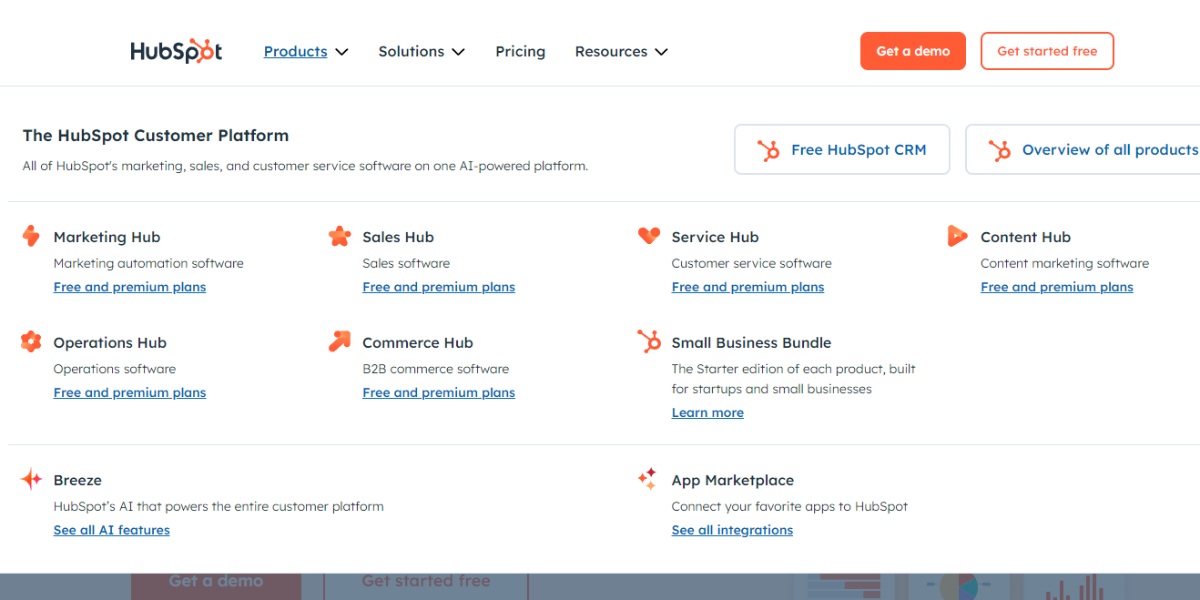
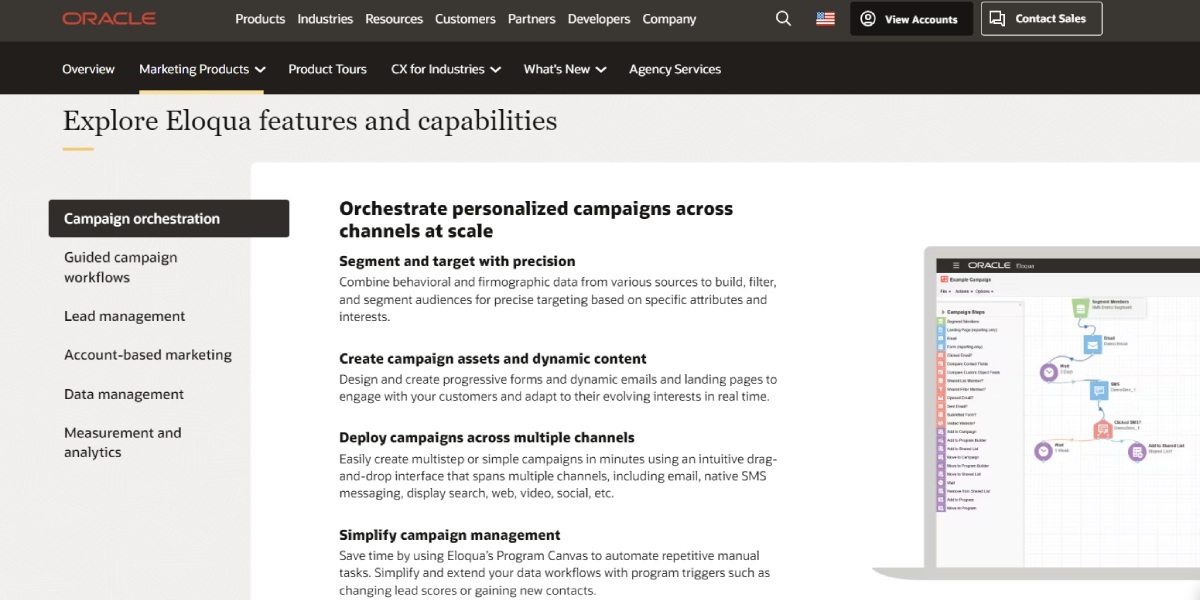
Integrating Hidden Gems: Strategies to Enhance Marketing Automation
Both HubSpot and Oracle Eloqua offer standard functionalities, but unlocking their hidden gems can significantly boost your marketing automation performance. Here are five strategies that can transform your campaigns:
1. Utilize Smart Content in HubSpot
Potential Effectiveness: High
Level of Obscurity: Moderate
Ease of Implementation: Moderate
Uniqueness: Unique
Leverage HubSpot’s Smart Content feature to personalize website content based on visitor data such as location, device, or contact properties. This targeted approach can increase engagement and conversion rates by delivering relevant content to the right audience.
2. Implement Progressive Profiling in HubSpot
Potential Effectiveness: High
Level of Obscurity: Moderate
Ease of Implementation: Easy
Uniqueness: Unique
Use progressive profiling to collect more information about your leads over time without overwhelming them with long forms. By asking different questions each time a lead fills out a form, you can gradually build a comprehensive profile that enhances lead nurturing.
3. Leverage Predictive Lead Scoring in Eloqua
Potential Effectiveness: High
Level of Obscurity: Moderate
Ease of Implementation: Moderate
Uniqueness: Unique
Utilize Oracle Eloqua’s predictive lead scoring capabilities to identify high-potential leads based on historical data and behavior patterns. This allows your sales team to prioritize outreach efforts on leads most likely to convert.
4. Automate Workflows for Lead Nurturing in HubSpot
Potential Effectiveness: High
Level of Obscurity: Low
Ease of Implementation: Easy
Uniqueness: Common but effective
Set up automated workflows in HubSpot to nurture leads through personalized email campaigns based on their interactions with your content. This ensures timely follow-ups and keeps potential customers engaged throughout their buyer’s journey.
5. Use Eloqua’s Advanced Segmentation Features
Potential Effectiveness: High
Level of Obscurity: Moderate
Ease of Implementation: Moderate
Uniqueness: Unique
Take advantage of Oracle Eloqua’s advanced segmentation capabilities to create highly targeted campaigns based on detailed customer data, such as engagement history and demographic information. This allows for more personalized messaging and better campaign performance.
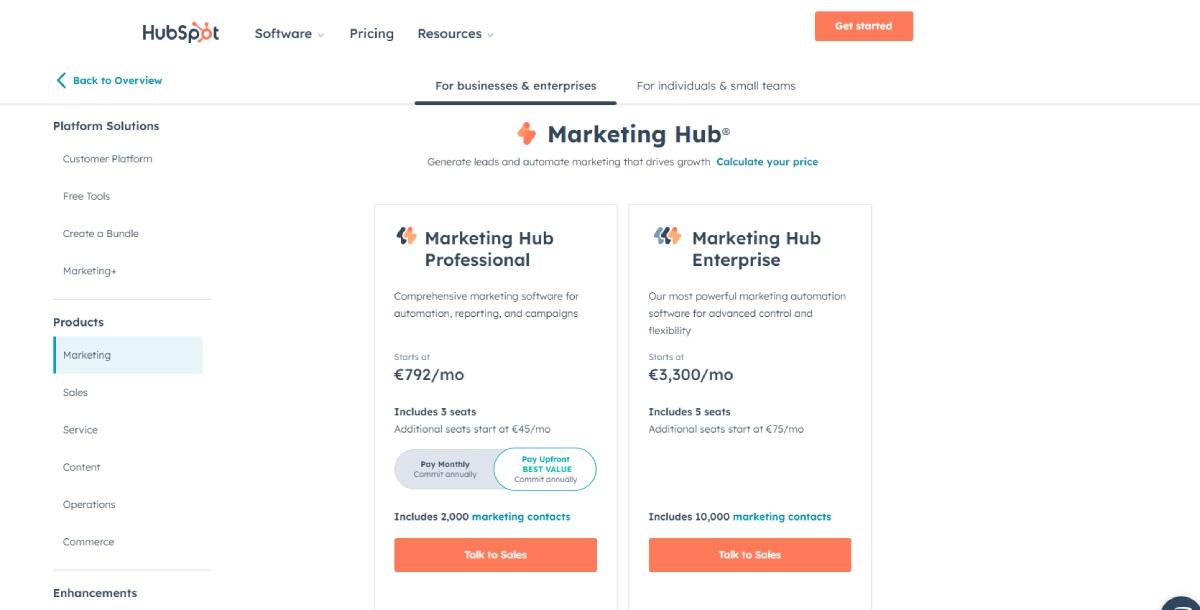
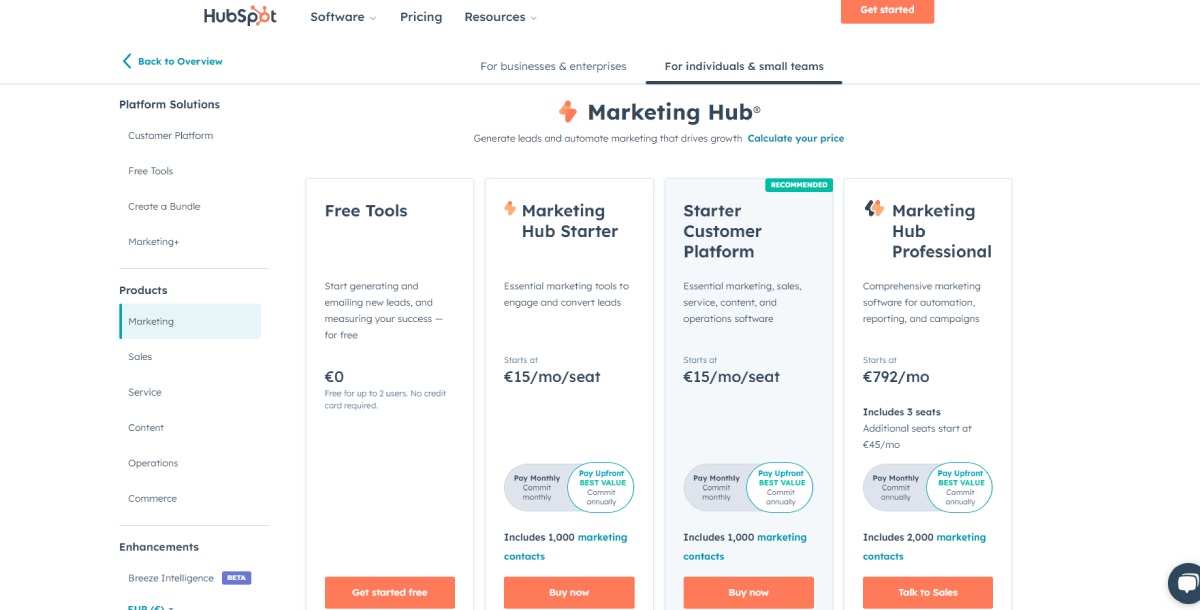
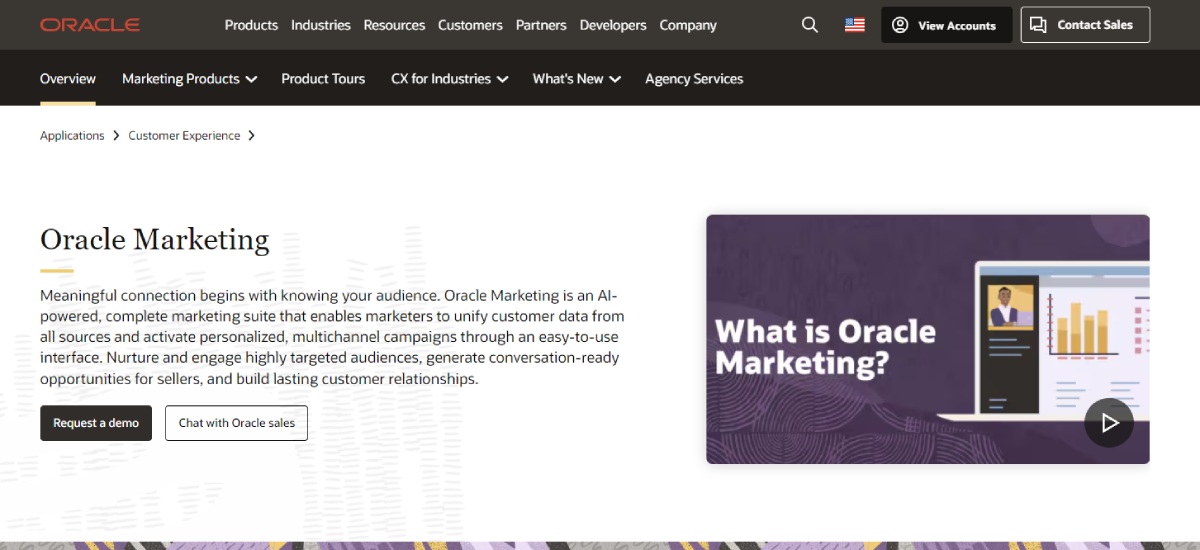
Prism Reach: Enhancing Marketing Automation with AI
While HubSpot and Oracle Eloqua offer robust solutions for marketing automation, Prism Reach introduces a new dimension with its AI-powered personalization capabilities. Designed to bridge the gap between comprehensive marketing features and advanced personalization, Prism Reach provides deep customization that can enhance any marketing strategy.
Key Benefits of Prism Reach
- Increased Engagement: Publishers report up to 40% higher engagement rates due to the personalized nature of the content.
- Higher Revenue: Tailored advertising and efficient content targeting lead to higher monetization rates for published newsletters.
- Improved Productivity: Automation and AI-driven insights significantly reduce the time required to create and manage campaigns.
Upgrade Your Email Marketing with AI Personalization!
Integrating Prism Reach with HubSpot and Oracle Eloqua
Prism Reach can complement both HubSpot and Oracle Eloqua by adding advanced personalization and AI-driven insights to your marketing automation efforts. Whether you’re looking to enhance your segmentation capabilities in HubSpot or leverage Eloqua’s advanced lead scoring, Prism Reach offers tools that can elevate your campaigns.
For instance, using Prism Reach’s AI-powered scheduling can optimize send times based on subscriber behavior, ensuring your emails reach recipients when they’re most likely to engage. Additionally, Prism Reach’s dynamic content selection can automatically tailor newsletter content to individual subscriber preferences, enhancing relevance and engagement.
Practical Tips for Maximizing Marketing Automation
To fully leverage the capabilities of HubSpot, Oracle Eloqua, and Prism Reach, consider the following practical tips:
- Combine Advanced Segmentation with AI Personalization: Use Oracle Eloqua’s advanced segmentation to categorize your audience, then apply Prism Reach’s AI to personalize content within each segment.
- Implement Smart Content and Progressive Profiling: Utilize HubSpot’s Smart Content and Progressive Profiling features alongside Prism Reach’s AI-driven content recommendations to enhance personalization and user experience.
- Monitor and Adapt: Regularly review engagement metrics from all platforms to refine your strategies and improve future campaigns. Use Prism Reach’s analytics to gain deeper insights into subscriber behavior and preferences.
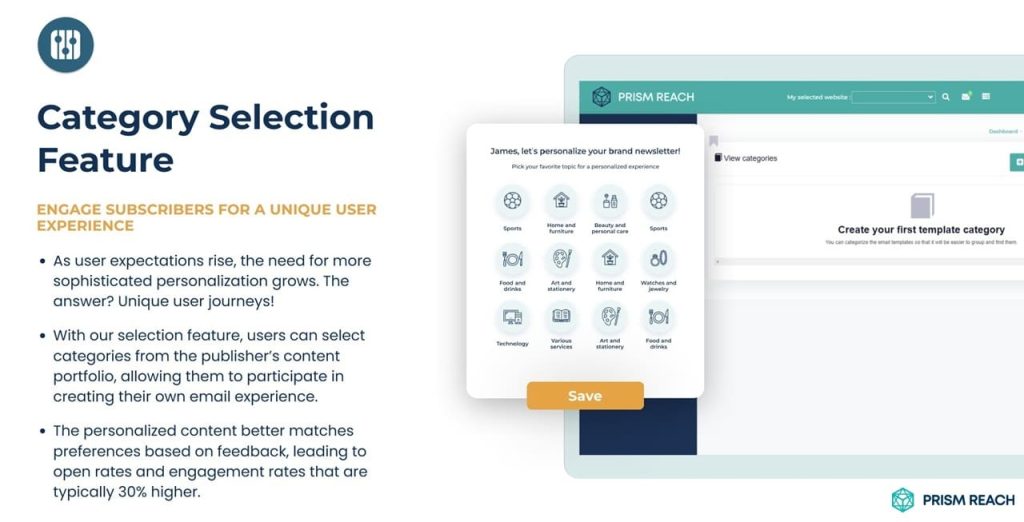
Choosing the Right Platform for Your Needs
The decision between HubSpot and Oracle Eloqua hinges on your specific requirements and marketing goals. Here’s a breakdown to guide your choice:
When to Choose HubSpot
- User-Friendly Interface: If you prioritize ease of use and quick adoption, HubSpot’s intuitive interface is a significant advantage.
- All-in-One Platform: HubSpot’s integrated CRM, content creation, SEO, and social media tools make it ideal for businesses seeking a comprehensive marketing solution without the need for multiple tools.
- Cost-Effective for SMBs: With its scalable pricing model starting at $45/month, HubSpot is more accessible for small to medium-sized businesses looking to manage their marketing efforts within a budget.
When to Choose Oracle Eloqua
- Advanced Customization: If your business requires highly customizable marketing automation workflows and complex campaign management, Oracle Eloqua is the superior choice.
- Enterprise-Level Features: Eloqua’s robust lead nurturing, multi-channel campaign management, and predictive analytics are ideal for large enterprises with sophisticated marketing needs.
- Integration with Enterprise Systems: For organizations with complex tech stacks and a need for extensive integration capabilities, Oracle Eloqua offers the flexibility to connect with a wide range of enterprise systems.
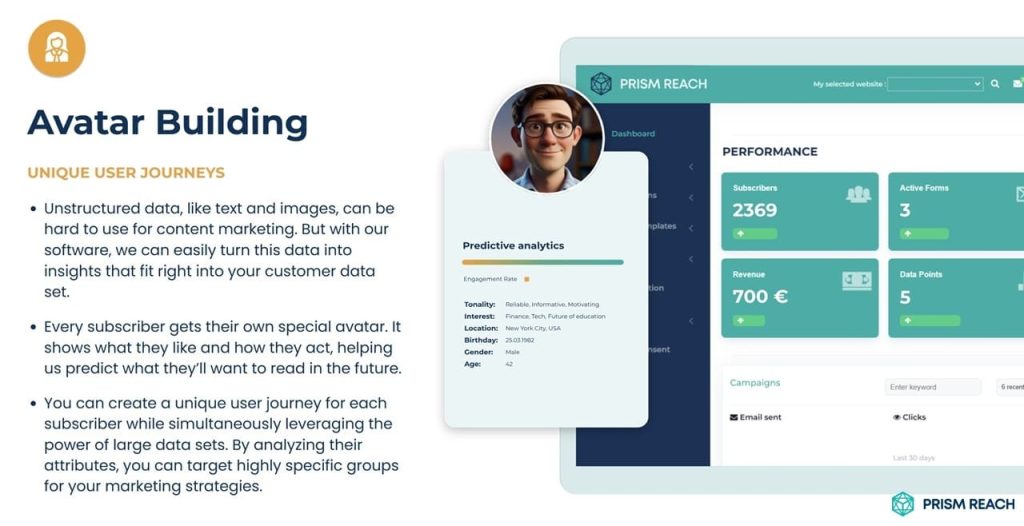
Enhancing Your Strategy with Prism Reach
Regardless of whether you choose HubSpot or Oracle Eloqua, integrating Prism Reach can significantly enhance your marketing automation strategy. Here are three specific benefits of Prism Reach that are relevant to this comparison:
- Deep Personalization: Prism Reach’s AI-powered user avatars and personalized introductions ensure each subscriber receives content tailored to their preferences, bridging the gap between HubSpot’s ease of use and Eloqua’s advanced capabilities.
- Optimized Send Times: Using predictive analytics, Prism Reach identifies the best times to send newsletters, maximizing open and engagement rates across both platforms.
- Seamless Integration: Prism Reach can be easily integrated with both HubSpot and Oracle Eloqua, enhancing their native capabilities without disrupting existing workflows, allowing for a more unified and efficient marketing strategy.
Conclusion
The choice between HubSpot and Oracle Eloqua ultimately depends on the specific needs, resources, and goals of each organization. HubSpot offers a more accessible, integrated solution ideal for SMBs and companies new to comprehensive digital marketing. Its user-friendly interface and all-in-one platform make it a compelling choice for businesses seeking to streamline their marketing efforts without the complexity of enterprise-level systems.
On the other hand, Oracle Eloqua provides unparalleled depth and customization for large enterprises with complex marketing needs and the resources to leverage its full potential. Its advanced features, multi-channel campaign management, and robust analytics make it suitable for organizations that require sophisticated marketing automation capabilities and are prepared to invest in the necessary technical expertise.
However, the emergence of innovative tools like Prism Reach highlights the evolving nature of email marketing automation. By incorporating AI-powered personalization and deep engagement strategies, Prism Reach offers a compelling alternative that bridges the gap between HubSpot’s user-friendliness and Eloqua’s advanced capabilities. Whether you choose HubSpot, Oracle Eloqua, or integrate Prism Reach, the key is to align your choice with your specific marketing goals, technical expertise, and the unique needs of your audience.
Ultimately, leveraging the hidden gems within these platforms and integrating advanced tools like Prism Reach can transform your marketing automation efforts, leading to higher engagement, increased revenue, and a more loyal customer base.